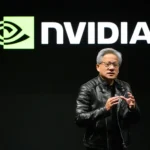Netflix continues to embrace artificial intelligence even as the entertainment industry debates when and how to use it in filmmaking. In its recent quarterly earnings report, the company told investors that it is well prepared to take advantage of the ongoing progress in AI. According to information gathered by TechMarge, Netflix sees AI not as a replacement for human creativity but as a tool that can make creative processes faster and more efficient.
Netflix’s CEO, Ted Sarandos, emphasized during the company’s earnings call that technology cannot replace talent. He said that creating something truly great still depends on great artists. Sarandos explained that AI can give filmmakers and writers better tools to improve how they tell stories and create immersive experiences for viewers, but it cannot turn anyone into a great storyteller by itself.
Netflix has already begun experimenting with generative AI in its productions. Earlier in the year, it used the technology in the Argentine sci-fi series The Eternaut to design a dramatic scene showing a building collapse. The team behind Happy Gilmore 2 also applied AI to de-age characters in the film’s opening moments, while producers of Billionaires’ Bunker used it in pre-production to visualize costumes and set designs before filming began. Sarandos said the company believes AI will help Netflix and its creative partners tell stories better, faster, and in entirely new ways. He added that the company remains focused on meaningful innovation rather than adopting new technology just to appear trendy.
Across Hollywood, the conversation around AI remains tense. Many artists fear that large language models trained on their creative work without consent could threaten their jobs. Still, studios appear more willing to use generative AI behind the scenes, especially for visual effects, rather than to replace actors or writers. Despite this, visual effects professionals worry that increased use of AI for production tasks could still affect their roles and opportunities.
The debate intensified after OpenAI introduced Sora 2, a new model capable of generating realistic audio and video. TechMarge noted that the tool lacks firm safeguards to stop users from producing videos of real actors or historical figures without permission. This development raised concerns across Hollywood, prompting the actors’ union SAG-AFTRA and actor Bryan Cranston to call on OpenAI to introduce stronger protections against deepfake videos.
When investors asked Sarandos about how Sora might influence Netflix, he admitted that AI tools like it could change how content creators work. Still, he reassured shareholders that he doesn’t expect AI to disrupt the film and television business itself. He said Netflix doesn’t fear artificial intelligence taking the place of creativity.
Despite falling slightly short of projections, Netflix reported a 17 percent year-over-year revenue increase, reaching $11.5 billion in the quarter. The company remains confident that blending innovation with human imagination will keep its storytelling strong, even in an era shaped by rapid technological change.
















